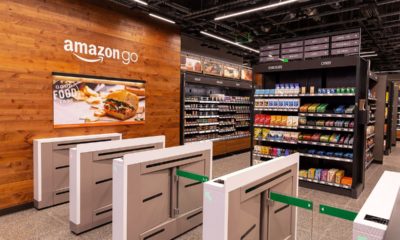E-commerce
Amazon Scraps Home Delivery Robot After it Failed to Meet Customers Needs
American multinational e-commerce company Amazon has halted the test of its automated delivery robot called “Amazon Scout” after it failed to meet customers’ needs.

E-commerce
Jumia Plans Warehouse Consolidation in Lagos Amid Nigeria Focus
E-commerce
Alibaba Eyes Gulf Expansion, Seeks Partnerships in Saudi and UAE Markets
E-commerce
Shoprite Shuts Down Kano Branch Due to Financial Challenges and Unfavorable Business Climate
-

 Naira4 weeks ago
Naira4 weeks agoDollar to Naira Black Market Today, April 24th, 2024
-

 Naira4 weeks ago
Naira4 weeks agoDollar to Naira Black Market Today, April 22nd, 2024
-

 Travel3 weeks ago
Travel3 weeks agoSaudi Arabia Breaks 70-Year Alcohol Ban, Opening Shop for Diplomats
-

 Naira3 weeks ago
Naira3 weeks agoDollar to Naira Black Market Today, April 25th, 2024
-

 Jobs4 weeks ago
Jobs4 weeks agoJob Cuts Hit Tesla: More Than 6,000 Positions Axed Across Texas and California
-

 Naira3 weeks ago
Naira3 weeks agoDollar to Naira Black Market Today, April 30th, 2024
-

 Investment4 weeks ago
Investment4 weeks agoMinister Accuses Past NCDMB Leadership of Squandering $500m on Unproductive Projects
-

 Travel4 weeks ago
Travel4 weeks agoDelta Air Lines Flight Diverts to Togo After Passenger Dies Midair
























